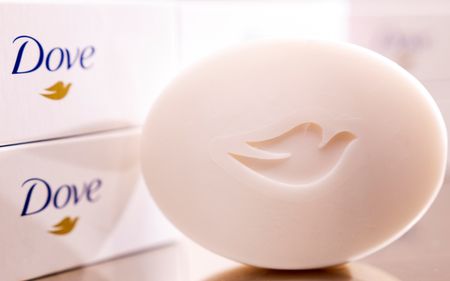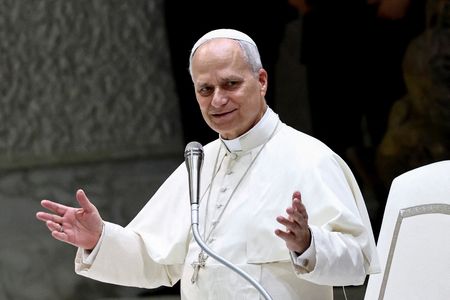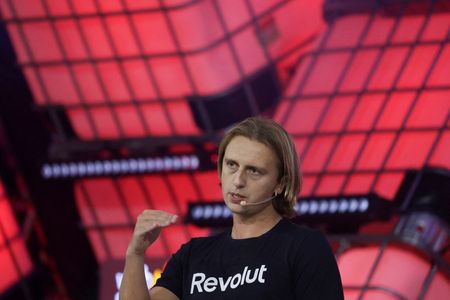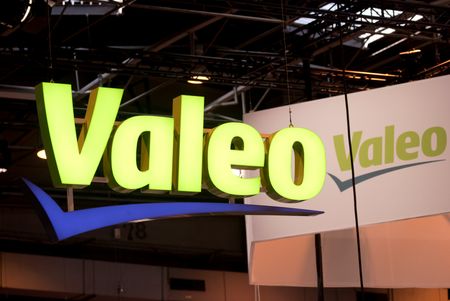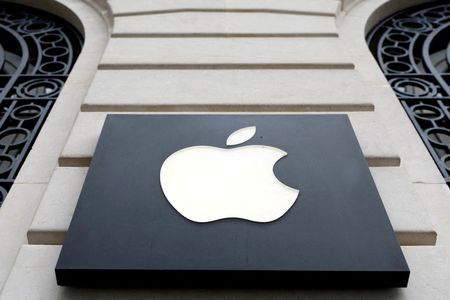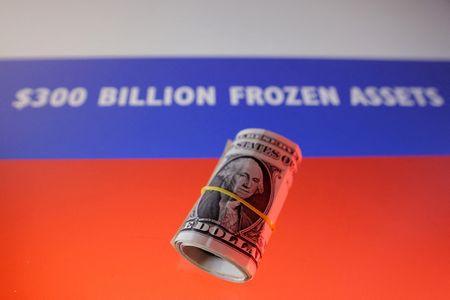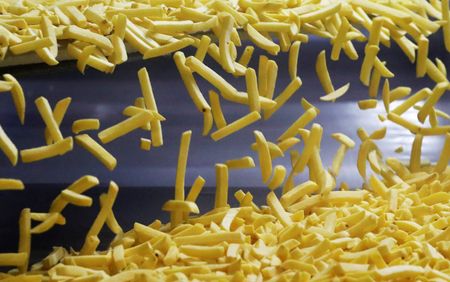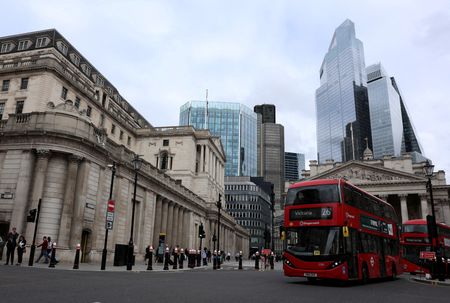(Repeats to additional subscribers. No change to text.)
By Yadarisa Shabong and Alexander Marrow
(Reuters) -Unilever said it was outpacing competitors “by a mile” in the United States, driven by double-digit sales growth from beauty brands including Dove, K18 and Nutrafol, helping the consumer goods firm top sales forecasts on Thursday.
The narrow beat in third-quarter underlying sales growth underscores how the owner of brands from Hellmann’s mayonnaise to Domestos disinfectant is looking to push into higher-margin premium products in beauty and personal care.
That’s key to a turnaround under new CEO Fernando Fernandez who took the helm of the consumer goods giant in March. He is streamlining the business, cutting costs, and exploring sales of non-core brands to bolster margins amid weak consumer sentiment and economic uncertainty.
Since Fernandez’s appointment, Unilever’s shares, which traded around 1.5% higher on Thursday, have performed better than Nestle, which announced 16,000 job cuts last week, but underperformed others like Danone and Reckitt.
NORTH AMERICA ‘STEALS THE SHOW’
Fernandez said the firm was re-shaping its brand portfolio, with more focus on beauty, wellbeing and personal care. Unilever was “prioritising premium segments and digital commerce, and anchoring our growth in the U.S. and India,” he added.
“We are very pleased with our performance,” said Fernandez. “We are outperforming markets by a mile there.”
Across all businesses, Unilever’s sales grew by more than 3%, with sales in its beauty and wellbeing unit rising 5.1%, led by double-digit growth in key hair brands, as well as Vaseline, Liquid I.V. and Hourglass.
Underlying sales growth of 3.9% beat analysts’ forecast of 3.7% from a company-compiled poll, with pricing growth of 2.4% topping analysts’ prediction of 2.2%.
North America “absolutely stole the show”, said Barclays analysts. Strong volume growth across personal care and beauty drove sales growth of 5.5% in the region.
“North America performance was very pleasing – especially given a lot of this was volume-driven,” said Richard Saldanha, Global Equity Portfolio Manager at Aviva Investors, which holds Unilever shares.
The consumer staples sector is attractively valued, but investor focus needs to be on companies delivering consistent volume growth, Saldanha said, describing Unilever’s underlying volume growth, driven by core brands, as encouraging.
Unilever wants to become a 2% volume growth business, and moved closer to that with 1.7% volume growth, excluding ice cream, in the quarter.
Fernandez said the U.S. government shutdown had not dented consumer sentiment, though it did lead Unilever this week to delay the spin-off of its Magnum-led ice cream business, originally scheduled for November 10.
Unilever still expects to complete the spin-off, a crucial test for Fernandez, by year-end and could seek automatic U.S. regulatory approval in the event of a lengthy shutdown.
Unilever’s ice cream unit, which also owns the Ben & Jerry’s and Cornetto brands, logged sales growth of 3.7% in the quarter.
TAX CHANGES HAMPER INDIA GROWTH
Volume growth was flat in India, a key market Unilever has earmarked for M&A, along with the United States.
In September, the Indian government reduced taxes on items ranging from soaps to small cars as it looks to boost domestic demand amid global headwinds including U.S. tariffs.
Quarterly sales in India were impacted as “trade reduced inventories and consumers delayed purchases in anticipation of lower prices,” group finance chief Srinivas Phatak said on an analyst call. “Trading conditions are expected to normalise from November onwards.”
Unilever left its full-year guidance for 3-5% sales growth unchanged and said it expected lower restructuring costs, of about 1.2% of turnover, in 2025.
(Reporting by Yadarisa Shabong in Bengaluru and Alexander Marrow in London. Editing by Sonali Paul and Mark Potter)

